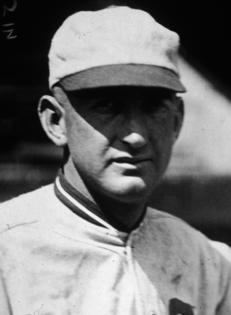Commentary: The lessons of 'Shoeless' Joe Jackson and the MLB's rewriting of history
Published in Op Eds
MLB Commissioner Rob Manfred recently removed Pete Rose’s permanent ban from baseball, which will make him eligible for induction into the Hall of Fame. Manfred reinstated 17 other banned players as well, including members of the infamous 1919 Chicago White Sox who threw the World Series, including the team’s star “Shoeless” Joe Jackson.
The reinstatement was an obvious sop to the gambling industry, an MLB partner, and possibly also to President Donald Trump, who lobbied for Rose’s future election into the Hall of Fame.
Manfred offered a tone-deaf rationale for reinstating this MLB’s rogues’ gallery: “Obviously, a person no longer with us cannot represent a threat to the integrity of the game.” Whatever else Manfred learned at Harvard Law School, history’s lessons failed to make the curriculum. Understanding history — human nature, mistakes made and the significance of previous cultures — is essential to cultivating integrity.
The nature of history is that no matter how many accounts we read about an event — whether it’s Napoleon Bonaparte’s Russia campaign, the Titanic sinking or the assassination of John F. Kennedy — we can never know precisely what people were thinking, how they acted and why. But whatever history is ultimately knowable, certain falsehoods and myths can be dispelled. This is where, over 100 years later, Jackson, a central figure in the Series fix, provides a lesson about how subtle the lack of integrity can be.
The story now circulating with ever greater popularity is that Jackson was an innocent bystander in the 1919 World Series fix. Claims of his innocence rest on two facts: He hit .375, including the only home run of the Series, and he was never convicted in a court of law.
The first demonstrates how statistics can mislead. By the accounts of other players, the Sox deliberately lost five games (the World Series was then best of nine), and they probably played honestly in two or three. In the first four games that the Sox lost, Jackson got no RBIs. He raised his average remarkably in the three games they won, but his only home run of the Series, along with a base-clearing double, came in the fixed final game clincher, with the Sox already facing an insurmountable lead, and the Series outcome no longer in doubt.
Jackson’s impressive World Series statistics were the result of his poor performance in four fixed games, three games he tried to win and one game in which his contribution didn’t matter in a rigged blowout loss to Cincinnati.
Although Jackson committed no errors, his fielding was likewise suspect. A granular analysis of Jackson’s performance by baseball blogger Dan Holmes reveals his “lackluster efforts in the field, critically in both Games One and Two.” The presiding judge in a subsequent civil suit recalled that Jackson had told him that “he had made no misplays that could be noticed by the ordinary person, but that he did not play his best.”
Regarding his courtroom exoneration and that of the other Black Sox, they were found not guilty of conspiracy, which is different from innocent, primarily because the charges were nebulous — they were charged with conspiracy because fixing baseball games was not a crime — and the Chicago jurors loved their hometown heroes. Baseball Commissioner Kenesaw Mountain Landis summarily banned the players permanently, restoring honesty to the game and saving baseball, along with the help of superstar Babe Ruth’s popularity.
Bill Lamb, a longtime state and county prosecutor in New Jersey, an authority on the scandal and author of “Black Sox in the Courtroom: The Grand Jury, Criminal Trial and Civil Litigation,” has analyzed the legal machinations. He points out Jackson originally admitted in grand jury testimony to being involved in the fix. Then, in a later civil trial against the team, he recanted his sworn testimony, essentially committing perjury.
Lamb poses other questions including why the other fixers would all implicate Jackson if he were innocent, and why Jackson, who claimed he wanted to return the $5,000 he received (he was promised $20,000), eventually deposited it in a Georgia bank near his home.
Lamb concludes: “That Joe Jackson was a likable fellow and persistent in his claims of innocence does not change the historical record. On the evidence, the call is not a close one,” Lamb wrote in 2019 for the Society for American Baseball Research.
“As he admitted under oath after first being confronted, Jackson was a knowing, if perhaps unenthusiastic, participant in the plot to fix the 1919 World Series. And damningly, Jackson was just as persistent in his demands to be paid his promised fix payoff money as the Series progressed as he would later be in his disavowals of fix involvement. In the final analysis, Shoeless Joe Jackson, banished from playing the game that he loved while still in the prime of his career, is a sad figure. But hardly an innocent one.”
Manfred may not realize that baseball culture has always reflected the larger societal culture. His reinstatement of Rose and Jackson is no exception: History has become an irrelevant triviality — ignored or, even better, forgotten. Ethics are now a bore since unethical behavior can always be papered over with tricks such as deceptive statistics and abstruse legal arguments.
Nothing good can come of this.
____
Dr. Cory Franklin is a retired intensive care physician.
_____
©2025 Chicago Tribune. Visit at chicagotribune.com. Distributed by Tribune Content Agency, LLC.

























































Comments